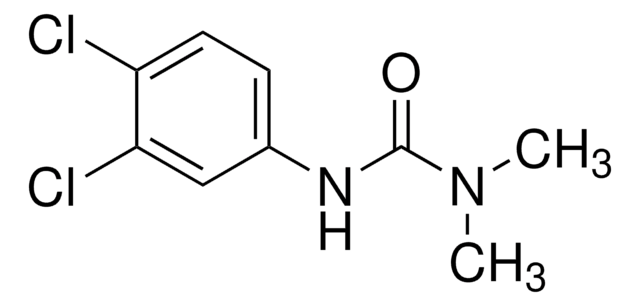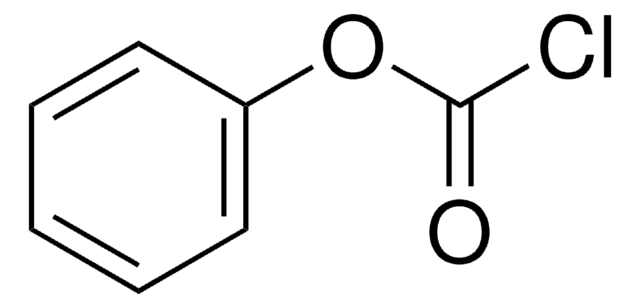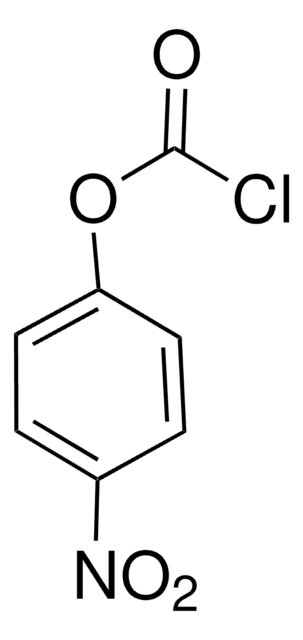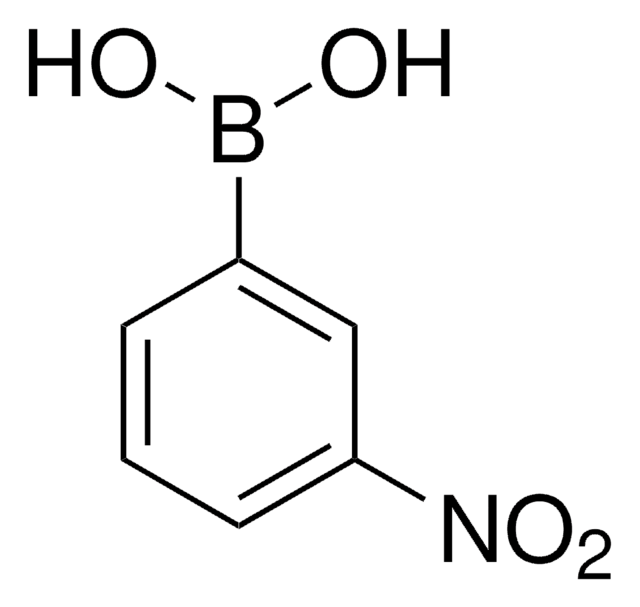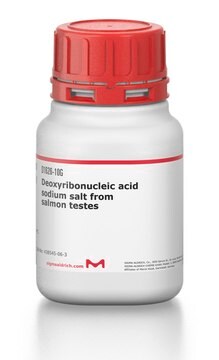271993
2,5-Dibromo-6-isopropyl-3-methyl-1,4-benzoquinone
Synonym(s):
2,5-Dibromo-3-methyl-6-isopropyl-p-benzoquinone, Dibromothymoquinone
Sign Into View Organizational & Contract Pricing
All Photos(2)
About This Item
Linear Formula:
(CH3)2CHC6Br2(CH3)(=O)2
CAS Number:
Molecular Weight:
321.99
EC Number:
MDL number:
UNSPSC Code:
12171500
PubChem Substance ID:
NACRES:
NA.47
Recommended Products
form
powder, crystals or chunks
Quality Level
mp
70-72 °C (lit.)
application(s)
diagnostic assay manufacturing
hematology
histology
storage temp.
room temp
SMILES string
CC(C)C1=C(Br)C(=O)C(C)=C(Br)C1=O
InChI
1S/C10H10Br2O2/c1-4(2)6-8(12)9(13)5(3)7(11)10(6)14/h4H,1-3H3
InChI key
GHHZELQYJPWSMG-UHFFFAOYSA-N
Related Categories
Application
2, 5-Dibromo-6-isopropyl-3-methyl-1, 4-benzoquinone has been used as a metabolic inhibitor of violaxanthin (V) cycle of Pelvetia canaliculata and is used as a photosynthetic electron transport chain (pETC) inhibitor.
Biochem/physiol Actions
2, 5-Dibromo-6-isopropyl-3-methyl-1, 4-benzoquinone acts as an inhibitor of respiratory and photosynthetic processes.
Storage Class Code
11 - Combustible Solids
WGK
WGK 3
Flash Point(F)
Not applicable
Flash Point(C)
Not applicable
Personal Protective Equipment
dust mask type N95 (US), Eyeshields, Gloves
Choose from one of the most recent versions:
Already Own This Product?
Find documentation for the products that you have recently purchased in the Document Library.
Deepak Venkanna et al.
Frontiers in plant science, 8, 1347-1347 (2017-08-22)
The protein superfamily of short-chain dehydrogenases/reductases (SDR), including members of the atypical type (aSDR), covers a huge range of catalyzed reactions and
Yuuki Sakai et al.
Planta, 221(6), 823-830 (2005-04-06)
In epidermal cells of the aquatic angiosperm Vallisneria gigantea Graebner, high-intensity blue light (BL) induces the avoidance response of chloroplasts. We examined simultaneous BL-induced changes in the configuration of actin filaments in the cytoplasmic layers that face the outer periclinal
Shan Gao et al.
Journal of experimental botany, 63(12), 4349-4358 (2012-03-23)
Porphyra yezoensis, a representative species of intertidal macro-algae, is able to withstand periodic desiccation at low tide but is submerged in seawater at high tide. In this study, changes in photosynthetic electron flow in P. yezoensis during desiccation and re-hydration
Ireneusz Slesak et al.
Plant & cell physiology, 44(6), 573-581 (2003-06-27)
Mesembryanthemum crystallinum, a facultative halophyte and C(3)-Crassulacean acid metabolism (CAM) intermediate plant, has become a favoured plant for studying stress response mechanisms during C(3)-CAM shifts. One hour of exposure to excess light (EL) caused inhibition of photosynthetic electron transport in
The KaiA protein of the cyanobacterial circadian oscillator is modulated by a redox-active cofactor.
Thammajun L Wood et al.
Proceedings of the National Academy of Sciences of the United States of America, 107(13), 5804-5809 (2010-03-17)
The circadian rhythms exhibited in the cyanobacterium Synechococcus elongatus are generated by an oscillator comprised of the proteins KaiA, KaiB, and KaiC. An external signal that commonly affects the circadian clock is light. Previously, we reported that the bacteriophytochrome-like protein
Our team of scientists has experience in all areas of research including Life Science, Material Science, Chemical Synthesis, Chromatography, Analytical and many others.
Contact Technical Service